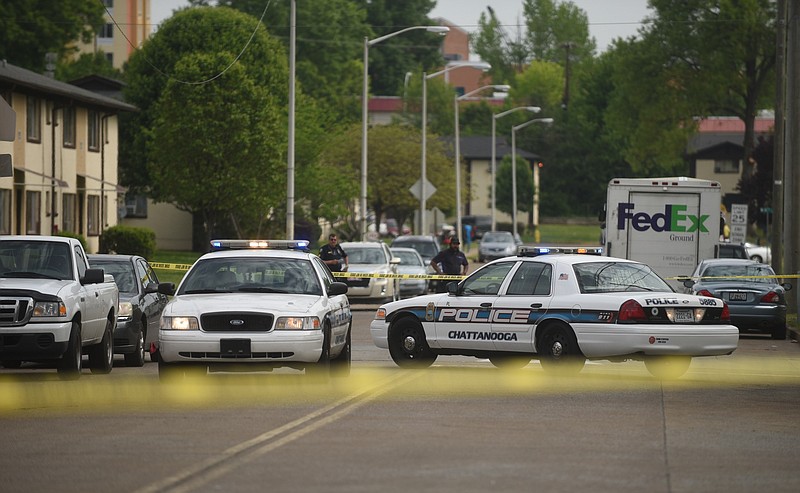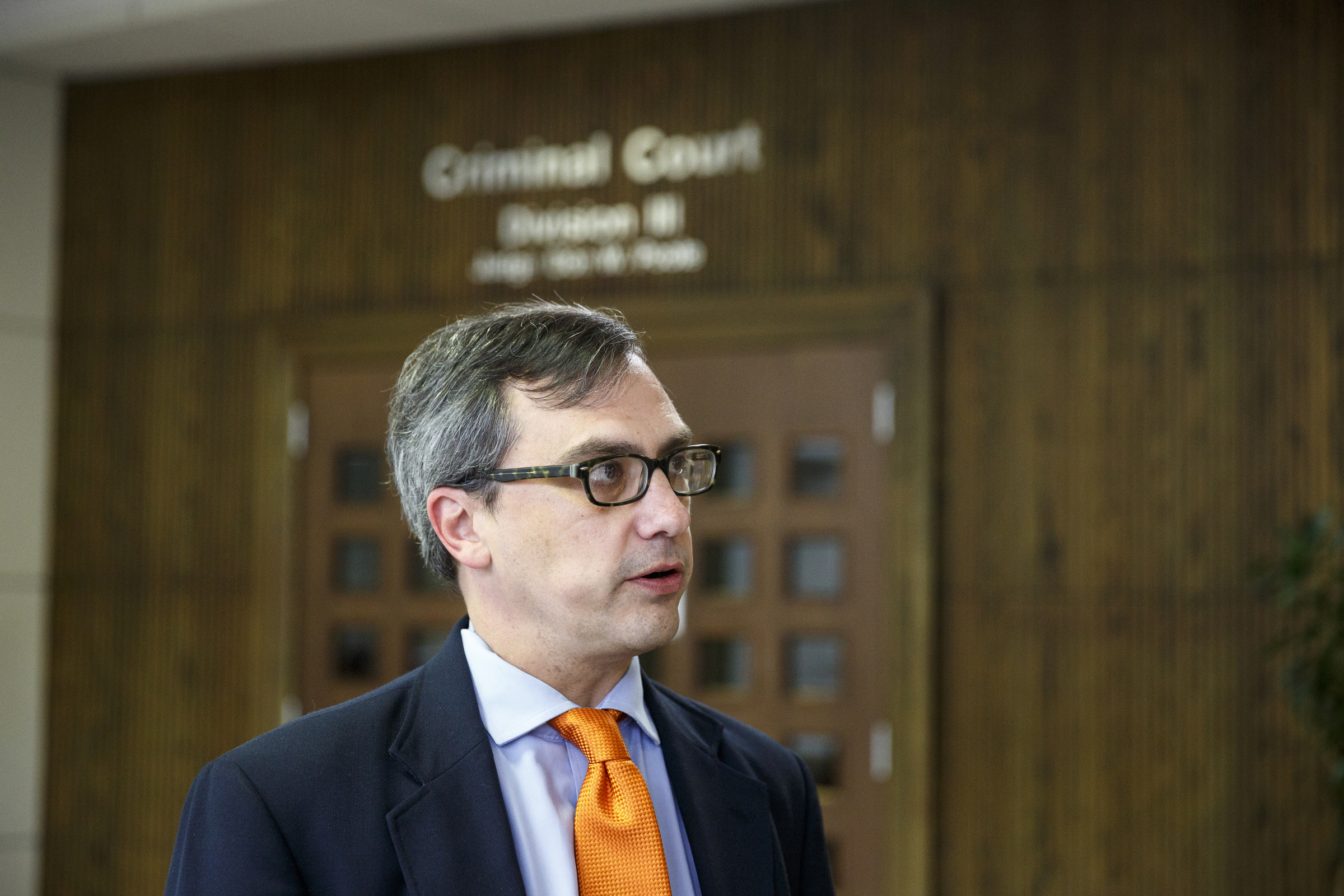NASHVILLE - Tennessee lawmakers' April rewrite of a criminal gang sentence-enhancement law after the original statute was struck down in court has caught the interest of Hamilton County District Attorney General Neal Pinkston.
At first blush, Pinkston said, the General Assembly's revisions may have addressed concerns in the April 7 ruling by the state Court of Criminal Appeals that sections of the 2012 gang enhancement statute were unconstitutional.
"Hopefully this legislative fix will pass constitutional scrutiny and allow us to use gang enhancements as they're intended," Pinkston said. "While using the [revamped] law does take more work by investigators to prove a crime was committed as part of a gang's operation, it will allow us to lock up violent gang members for longer periods of time."
Pinkston's comments come amid months of clashes with Chattanooga officials over how prosecutorial power should be used to advance the city's Violence Reduction Initiative against criminal gangs.
"I think the court found the problem was [the statute] was very vague, certain sections, and it even indicated a sorority or fraternity member could fit under the statute, which obviously wasn't the intent," Pinkston said in an interview.
City officials have said the VRI doesn't rely on the gang sentencing enhancement provisions. Instead, it is based on aggressively pushing maximum sentences for crimes committed by gang members.
In striking down the 2012 law, appellate judges said that automatically bumping up sentencing ranges for specific crimes based only on the defendant's gang status violated the Due Process clause of the U.S. Constitution's Fourteenth Amendment.
The judges said a law specifying that gang members can get more prison time if the crime was proven to be part of a criminal gang's activities would probably pass muster.
After the ruling, the General Assembly rushed to tighten up the statute, clearly defining what a criminal gang is and how to effectively tie a defendant to a gang to trigger the harsher sentences. Gov. Bill Haslam signed the bill March 28 and it became effective immediately.
Pinkston said the revamped law "seems to be workable in that the corrections are geared to activity of someone who's a gang member and that the activities are in furtherance of the gang or in associationship with the gang, not just any activity they may have done."
Also read
The few who shoot
Pinkston had not used the law since becoming Hamilton County's prosecutor in 2014. Knox County prosecutors did. The Knoxville News-Sentinel reported the appellate ruling jeopardized some 60 enhanced sentences for gang members convicted of crimes.
Rep. William Lamberth, R-Cottontown, a former assistant prosecutor who sponsored the revision, said last week lawmakers had to "move very quickly at the end of session to make sure to shore up that law."
Lamberth said the wording now "solidifies that if you're in a gang and you commit a crime as part of that gang and in relation to your gang activities, then it is going to be an enhanced status."
For months, Pinkston, Chattanooga Mayor Andy Berke and city Police Chief Fred Fletcher have publicly bickered over the prosecutorial element of Berke's signature VRI.
The strategy seeks to crack down on violent gang members while offering social services and jobs to those who put down their guns. Berke, Fletcher and others say they want Pinkston's office to push for the maximum allowable penalties against targeted gang members convicted of crimes.
Pinkston is wary of that approach, saying prosecutors can't push for longer sentences based solely on gang membership, and called on police to prove solid ties between gang members and crimes.
City officials, however, say the VRI's strategy for aggressive prosecution never relied on the gang sentencing enhancement law. After the appellate ruling, Chief Fletcher said it "changes nothing."
"VRI was never conditioned on the use of this statute," Fletcher said at the time. "Instead, through VRI we ask the DA's office to seek the higher end of the existing sentencing range because the defendant's gang has murdered someone or is the most violent group in town. In other words, we ask the DA to push, as the prosecutor, for punishments closer to the maximum rather than the minimum."
Melydia Clewell, Pinkston's spokeswoman, said via email Pinkston "has always believed that other than arresting the actual killers/shooters the single most effective way to get gang members off the streets for extended periods of time at the state level is to be able to prove they committed crimes while in furtherance of the gang's activity &/or business."
Clewell said Pinkston "would love to see this enhancement used here as frequently as it's been used in Knoxville."
But she said "it is imperative that we be able to prove the crimes are related to gang business because we must be able to ask for enhanced sentencing that will withstand an appeal."
Contact Andy Sher at asher@timesfreepress.com or 615-255-0550. Follow on twitter at AndySher1.


